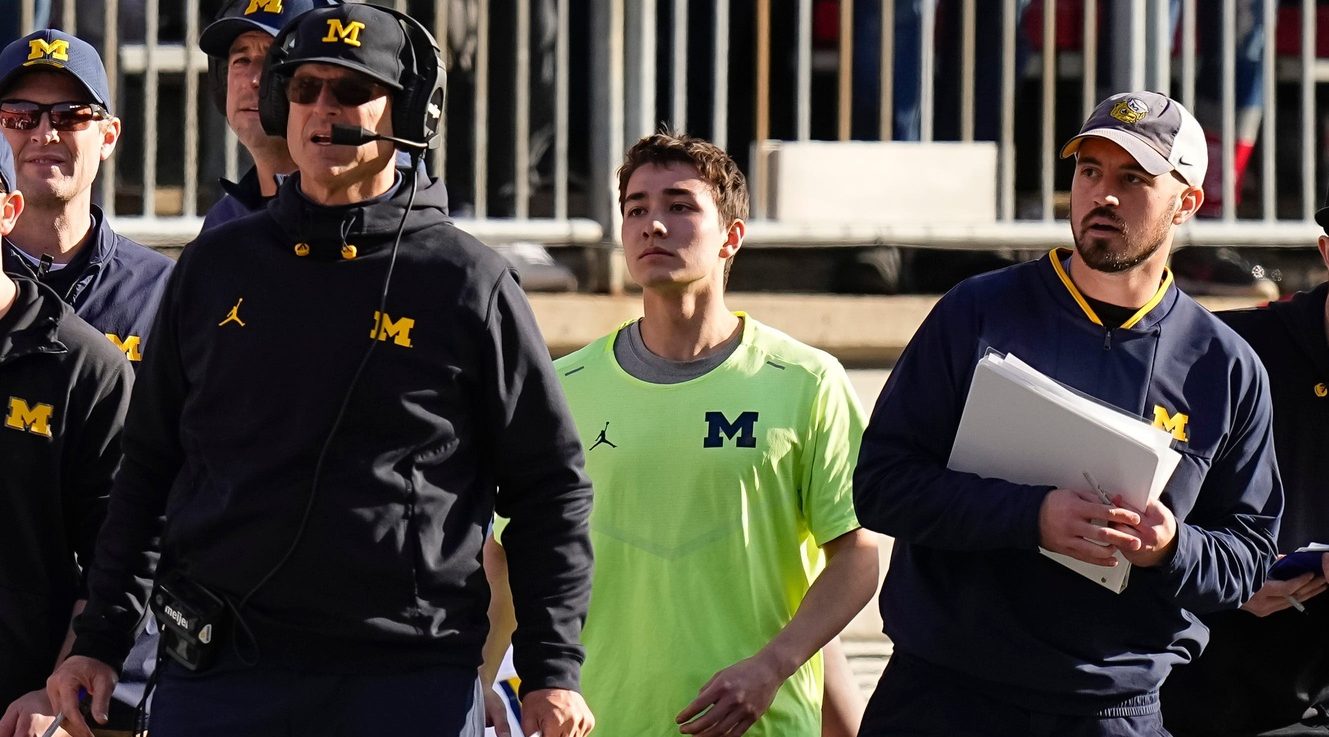Tuesday, August 27, is the day the Netflix documentary focused on the Michigan sign-stealing saga orchestrat
buckeyeswire.usatoday.com
5 takeaways from Michigan's Connor Stalions sign-stealing Netflix documentary
Tuesday, August 27, is the day the Netflix documentary focused on the Michigan sign-stealing saga orchestrated by former staffer, Connor Stalions, is available for the masses to watch. Certainly, there will be two metro areas where the streaming of “Untold: Sign Stealer” will go ballistic. You can bank on the Detroit market and the Columbus market gobbling this thing up much like the two fanbases have gobbled each other up in making sense of what it all means.
We had our first viewing of the documentary early on Tuesday morning and are here to provide some commentary on what we feel was pretty unbiased storytelling. It’s hard to take the fandom out of something like this when trying to stay in the middle and decipher what it all means. Still, yes, we’ll try to do our best to take off the scarlet and gray colored glasses to pull out some of the more interesting themes that are portrayed in what will surely be a Netflix hit sooner rather than later, especially for college football fans, and most definitely for Ohio State and Michigan fanatics.
Here are five things from the much-anticipated release of Netflix’s “Untold: Sign Stealer,” for your reading pleasure. Happy consumption. And while you are at it, get a take from Isaiah Hole, publisher of our fellow College Wire site, Wolverines Wire, who was featured in the documentary.
1. Connor Stalions was obsessed
What we took away
Even the most ardent Michigan apologist has to walk away from this documentary understanding that Stailions was obsessed with making a difference for the Wolverine program. His fanatic ways were emboldened as a child of die-hard Michigan parents. He dressed up as a Michigan head coach for Halloween, went into the military because some of the greatest coaches of all time had military backgrounds, and even kept an extensive database of recruiting hotbeds and signs that he could draw from. He had a deep “manifesto” that he kept all in the end game of becoming a coach for Michigan one day.
Stalions life was driven almost solely by Michigan football and eventually finding his way on the staff, and even someday parlaying his passionate fandom into becoming the head coach in Ann Arbor. History has shown that men obsessed with things will do whatever it takes to reach an end goal. We aren’t saying that’s what happened here, we’ll let others be the judge of that, but it wouldn’t be the last time a line was crossed to realize the biggest of dreams.
Several times, Stalions is quoted in the film as saying “As long as Michigan wins.” Take that as you will.
2. Sign-stealing is indeed important
What we took away
One of the prevailing arguments used by defenders of the sign-stealing allegations against Stalions and Michigan is that sign-stealing isn’t all that important in the grand scheme of things. Clearly, though, that’s not what more than a few college programs believe. According to at least part of the documentary, there are a lot of schools using whatever they can to steal and decipher opposing programs’ signs as close to the line — and probably in some cases beyond it — as possible.
If sign-stealing isn’t important in the outcome of games, why go through so much trouble? Why the underground network of tape swapping and sharing of ideas? Knowing an opponent’s play calls has an advantage or there wouldn’t be so much effort in cloaking the signs and also in trying to break the code. Yes, teams still have to execute, but there has apparently been a lot of effort put into the cat-and-mouse game of getting into the head of an opponent.
Side note: It’ll be interesting to see how the helmet communications going into play this season level the playing field a bit.
3. Jim Harbaugh gave Stalions the game ball for the win over Iowa in 2022
.
.
continued
.
.
4. So, about Stalions being on the sidelines at Central Michigan
.
.
continued
.
.
5. There is still an Ohio State connection to the investigation being thrown out
What we took away
Most of the documentary focused unbiasedly on the story with storytelling of who Stalions was as a person and what transpired through the lenses of Michigan, but the notion that Ohio State was the whistle-blower in this entire thing was floated out there again, and that the information may have been obtained illegally.
The only thing that matters here is how the information was obtained. The information is what it is whether incriminating or not and who provided it doesn’t really matter. However, Stalions’ lawyer believes some of the evidence was hacked from his computer illegally because he did not share his spreadsheets and databases with anyone. There is reportedly a third-party investigative firm that tipped the NCAA on the sign-stealing methods and the documentary paints the theory that Ryan Day and Ohio State are behind it all.
There is no proof provided that there are computer crimes involved in obtaining Stalions’ materials other than he didn’t share it with anyone, so it seems flimsy at best, but we’ll have to see if that theory gets more legs to it than what was drummed up a few months ago.
Day, for his part, has denied any involvement from him or his staff.
Just sayin': I don't subscribe to Netflix so i won't be seeing the documentary. I guess this article is a good summation of the show though.





 this is some clown from a Detroit Fox affiliate, must be good friends with Balas.
this is some clown from a Detroit Fox affiliate, must be good friends with Balas.





